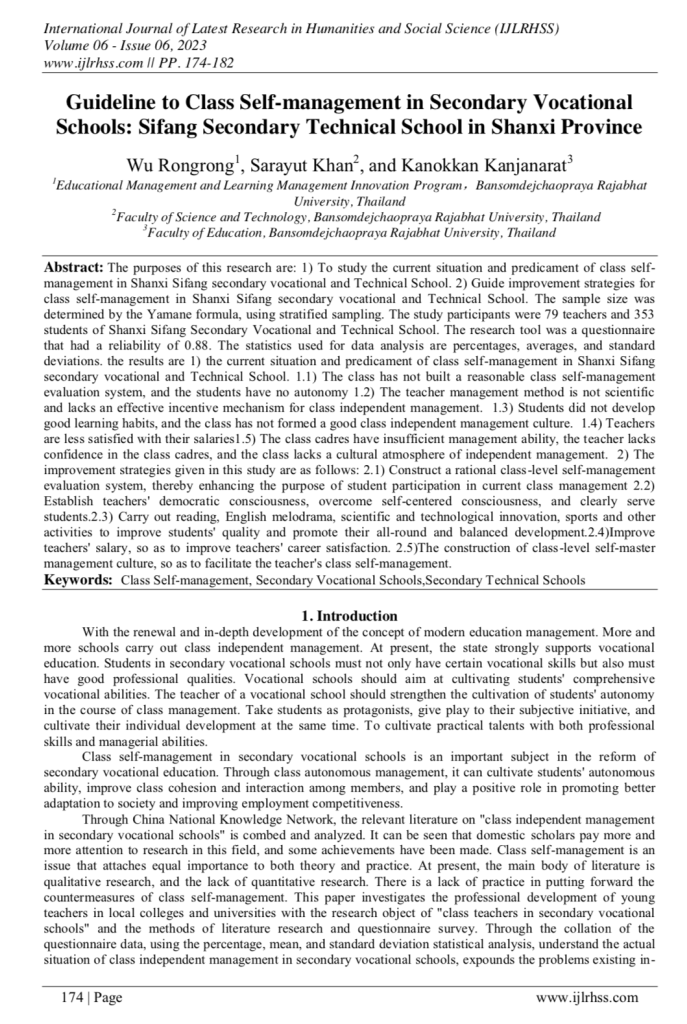Abstract: The purposes of this research are: 1) To study the current situation and predicament of class self- management in Shanxi Sifang secondary vocational and Technical School. 2) Guide improvement strategies for class self-management in Shanxi Sifang Secondary Vocational and Technical School. The sample size was determined by the Yamane formula, using stratified sampling. The study participants were 79 teachers and 353 students of Shanxi Sifang Secondary Vocational and Technical School. The research tool was a questionnaire that had a reliability of 0.88. The statistics used for data analysis are percentages, averages, and standard deviations. the results are 1) the current situation and predicament of class self-management in Shanxi Sifang secondary vocational and Technical School. 1.1) The class has not built a reasonable class self-management evaluation system, and the students have no autonomy 1.2) The teacher management method is not scientific and lacks an effective incentive mechanism for class independent management. 1.3) Students did not develop good learning habits, and the class has not formed a good class independent management culture. 1.4) Teachers are less satisfied with their salaries1.5) The class cadres have insufficient management ability, the teacher lacks confidence in the class cadres, and the class lacks a cultural atmosphere of independent management. 2) The improvement strategies given in this study are as follows: 2.1) Construct a rational class-level self-management evaluation system, thereby enhancing the purpose of student participation in current class management 2.2) Establish teachers’ democratic consciousness, overcome self-centered consciousness, and clearly serve students.2.3) Carry out reading, English melodrama, scientific and technological innovation, sports and other activities to improve students’ quality and promote their all-round and balanced development.2.4)Improve teachers’ salary, so as to improve teachers’ career satisfaction. 2.5)The construction of class-level self-master management culture, so as to facilitate the teacher’s class self-management.
Keywords: Class Self-management, Secondary Vocational Schools, Secondary Technical Schools

